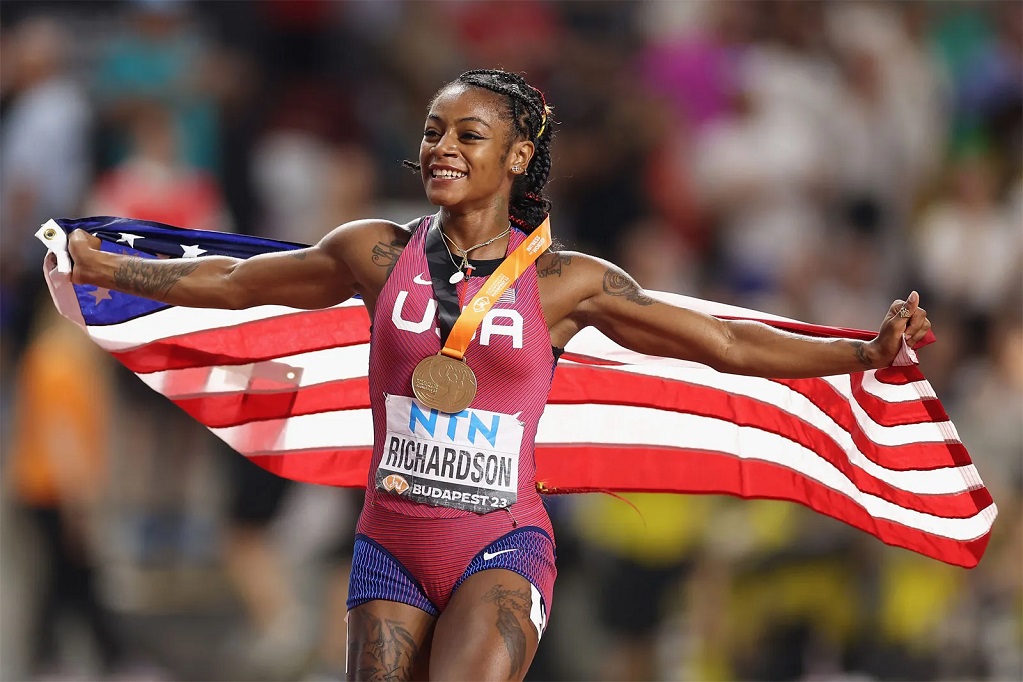Hijab-Wearing Players in NCAA Tournament Hope to Inspire Others
Written by worldOneFm on March 29, 2024
North Carolina State University’s Jannah Eissa and University of California, Irvine’s Diaba Konate are bringing visibility and inspiration to some Muslim women by wearing hjiabs while they play basketball.
They aren’t the first women to do it in NCAA Tournament play, but with record viewership and attendance, they are certainly getting noticed.
“Representation really matters,” said Konate, whose team lost in the first round of the tournament to Gonzaga University. “Just having people, young Muslim women wearing the hijab, we’re not there yet. Just seeing us play, I think it makes me really happy because I used to have people that I was looking up to. Now having people that look up to me makes me happy.”
Konate admires Bilqis Abdul-Qaadir, who made NCAA history by being the first to wear a hijab in college basketball when she played for Memphis a decade ago. Abdul-Qaadir was instrumental in getting FIBA, the International Basketball Federation, to overturn its own ban on headgear in 2017.
Former University of Connecticut player Batouly Camara, who was one of the first to wear a hijab in Spain’s LF1 league, has enjoyed seeing Eissa and Konate represent their religion.
“It’s truly inspiring to witness these two Muslim athletes competing at the highest level. This tournament serves as a significant moment, shining a spotlight on the best teams simultaneously with their faith,” said Camara, who founded the nonprofit organization Women and Kids Empowerment in 2017. “It sends a powerful message to girls worldwide, affirming that they belong on the sports field, regardless of economic class, race, culture and more.”
Konate started 31 of 32 games for UC Irvine, averaging 7.5 points and nearly four assists. She moved to the United States from France after receiving a scholarship from Idaho State University. She transferred to UC Irvine as a junior.
She’d like a chance to play in a hijab at home in France, where she won two medals playing on their youth teams. But currently, the French Federation of Basketball prohibits the wearing of “any equipment with a religious or political connotation.”
“Being French and hosting the Olympics, it really hurts to not be able to be ourselves,” said Konate, who first started wearing the hijab in 2020. “Hopefully, it changes.”
Eissa and Konate have never met but are aware of each other.
“I just know there’s another woman wearing a hijab,” Eissa said. “I just saw a post about two days ago. I was so happy there are other people.”
Eissa, who turned 18 in February, was a walk-on at N.C. State. She joined the team after trying out in September. She didn’t play much this season — appearing in 11 games and hitting one 3-pointer.
Earlier this season, a group of young Muslim girls came to her game. They also showed up a few more times to support her.
“I’d love to say I was a role model to them. Never thought I could be a role model for someone I didn’t know,” said Eissa, who grew up in Cairo before coming to N.C. State. “Never knew one person could make such an impact.”
Eissa chose N.C. State because her father received his PhD there and her two older sisters attend the university.
She said when having a bad day or an off day, she’d remember her young fans and it would bring a smile.
“If they see someone giving them hope, I’m happy that I’m the person to give it to them,” Eissa said. “I want to make it as far as I can for the image of women in hijabs.”
By Associated Press







